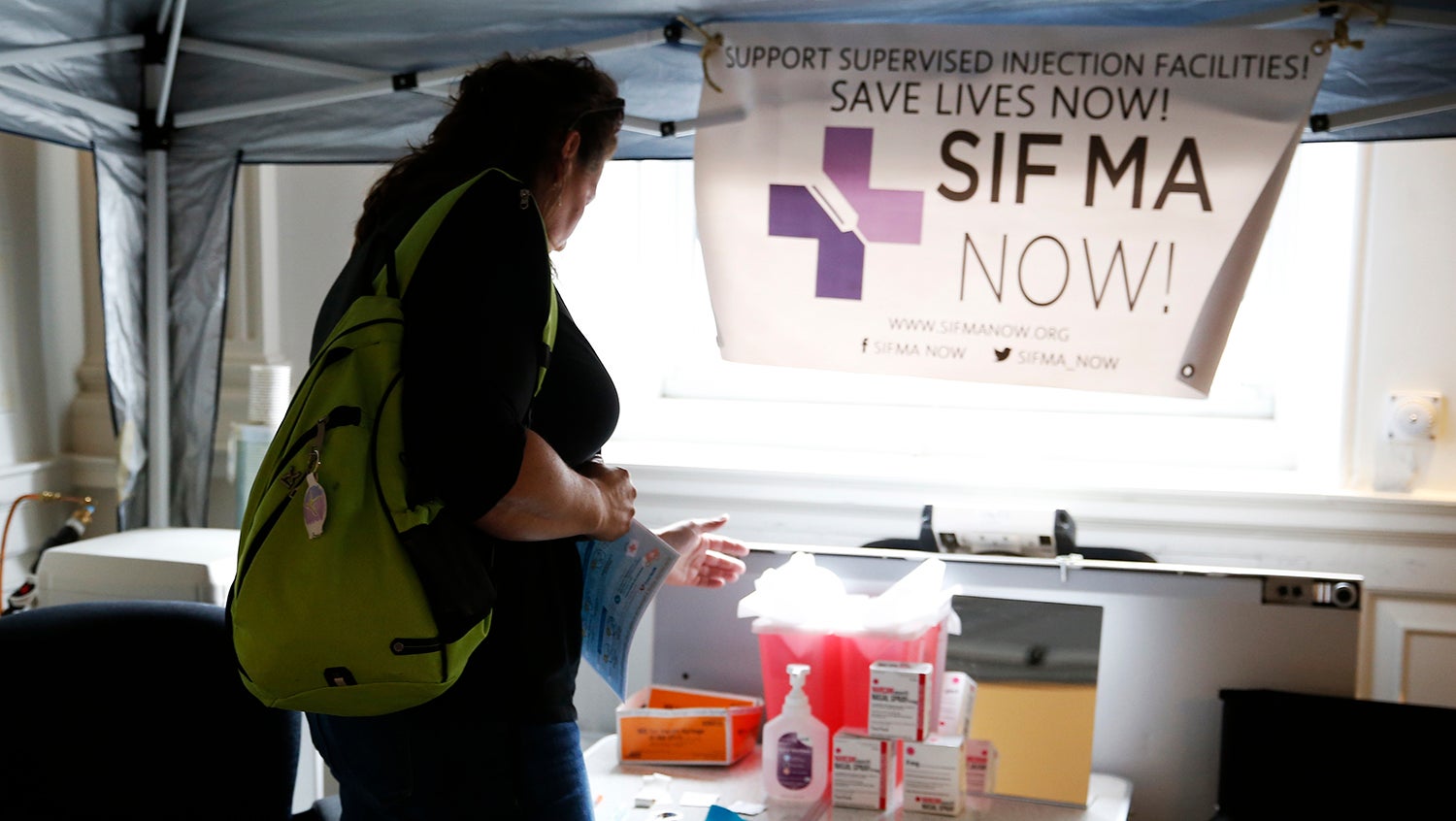Safe Consumption Sites Directly Meet the Needs of the BMC Community
October 5, 2021

Boston Globe via Getty Images
Members of the Grayken Center for Addiction testified to the state about the need for safe consumption sites to address the rise in opioid overdose deaths.
Opioid-related overdose deaths rose in Massachusetts last year by 5% to a total of 2,104—marking the first increase in the state in three years and its highest peak, topping 2016’s peak of 2,102. This increase from 2019 to 2020 occurred amid the ongoing COVID-19 pandemic, and like the pandemic, has disproportionately affected Black Americans, with opioid overdose deaths among Black men in Massachusetts rising 69%.
Addiction specialists from Boston Medical Center’s Grayken Center for Addiction joined many others from across the state last week to testify before the Massachusetts Legislature’s Joint Committee on Mental Health Substance Use and Recovery in support of legislation to create supervised consumption sites. Bills H.2088 and S.1272, “An Act relative to preventing overdose deaths and increasing access to treatment,” if passed, would open two or more supervised consumption sites in the state as part of a 10-year pilot program.
Supervised consumption sites—also called safe consumption sites, safe injection sites, safe injection facilities, or overdose prevention centers—are safe and clean facilities where people with substance use disorder (SUD) can use drugs they acquired offsite. They would be supervised by trained staff, who would be available to give sterilization help or medical assistance as needed to prevent overdose and death.
Miriam Komaromy, MD, the medical director of the Grayken Center gave a brief introduction to her colleagues’ testimonies and made it clear that they support opening safe consumption sites as soon as possible. Alex Walley, MD, MSc, also spoke in favor, and Jessica Taylor, MD, spoke to how these sites could be a public health tool to reduce HIV transmission.
Miriam Harris, MD, MSc, combatted common misconceptions about safe consumption sites and spoke to how they respond directly to the needs of BMC’s community and can be an opportunity to engage people with SUD in harm-reduction services and treatment.
Below is an excerpt from her testimony.

Miriam Harris, MD, MSc
“We must act in the face of the present overdose public health crises and worsening racial inequity.
We know that supervised consumption sites save lives, reduce infections, and engage people in other health and social services. We know this from more than 100 peer-reviewed research papers. As a Canadian-trained physician, I know this from firsthand experience working in or alongside safe consumption sites. Yet, we hesitate to move forward due to unfounded concerns that these spaces will increase substance use, addiction, and crime despite all the evidence pointing to the contrary. These were the same arguments presented when syringe service programs were hotly debated in the 1990s during the peak of the HIV/AIDS epidemic. We know from our own experiences that syringe service programs have not created addiction, but they have saved lives, just like safe consumption spaces. Yet we will not act. While we wait, my patients and friends are getting HIV. While we wait, my patients and friends are dying.
It is time to prioritize the lives of people who use drugs. People who use drugs have told us that a safe consumption site is what they need and want. The Boston Users Union has repeatedly lobbied in support of safe consumption spaces. A recent survey among people who use drugs in Somerville showed that 94% would use a safe consumption site. It is incumbent upon us to listen. If we want to meaningfully reduce overdose deaths, we must move forward with interventions that are responsive to the community’s needs.
Establishing a supervised consumption site presents a huge opportunity to work in partnership with people who use drugs, seeking a common goal of health and healing. Supervised consumption sites are community-based programs that are seen as kind, welcoming spaces for people who use drugs, who have often been made to feel unwelcome or traumatized in our traditional healthcare settings. These sites could connect us with people we are not connecting with. The community and sense of hope created by supervised consumptions spaces are tangible and meaningful benefits in addition to the well-described reductions in overdose and injection-related infections.”
To watch Miriam Harris’s speech in full, as well as the comments from Komaromy, Walley, and Taylor, you can watch the full video of the hearing on the Joint Committee’s website.


